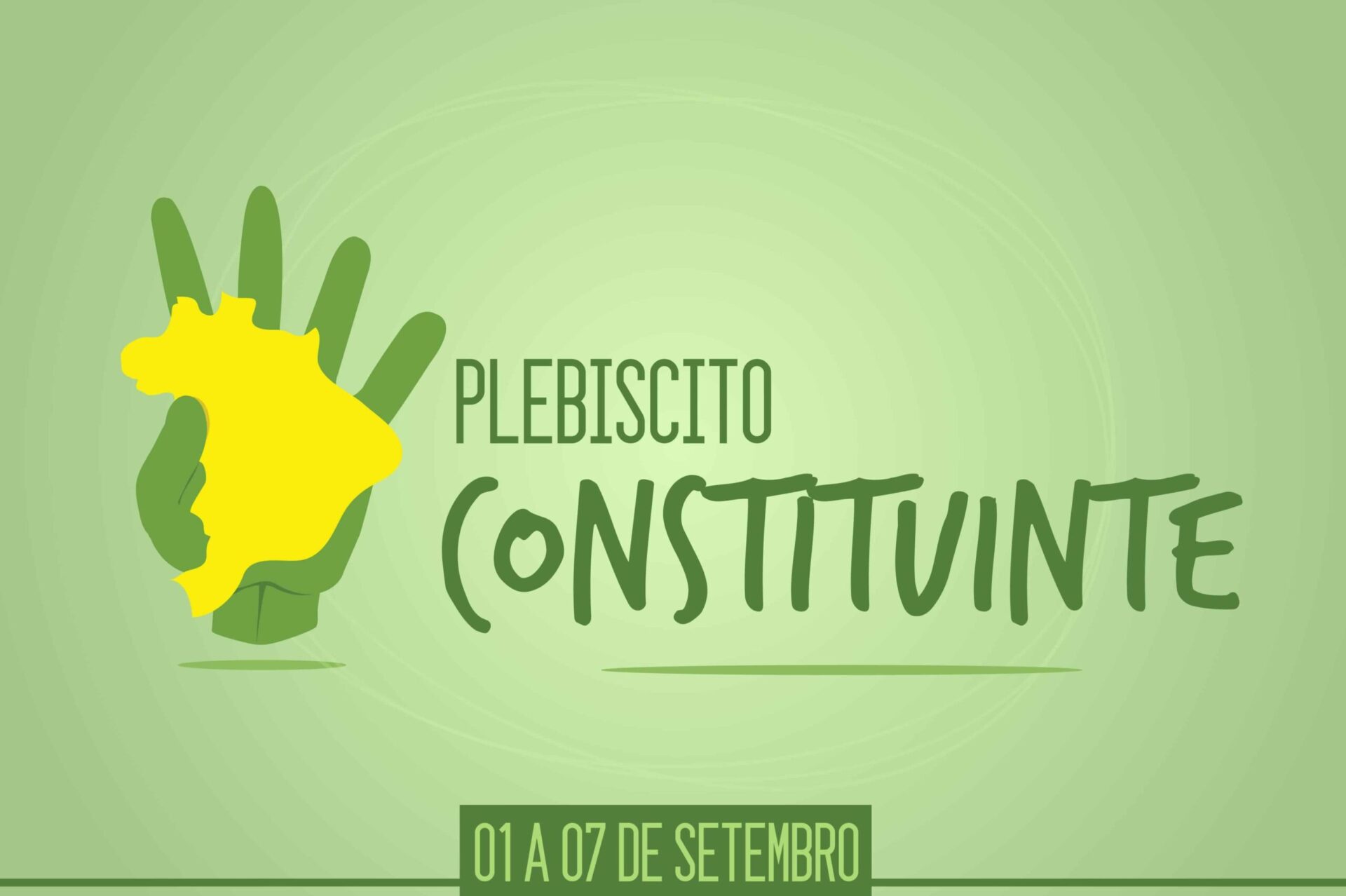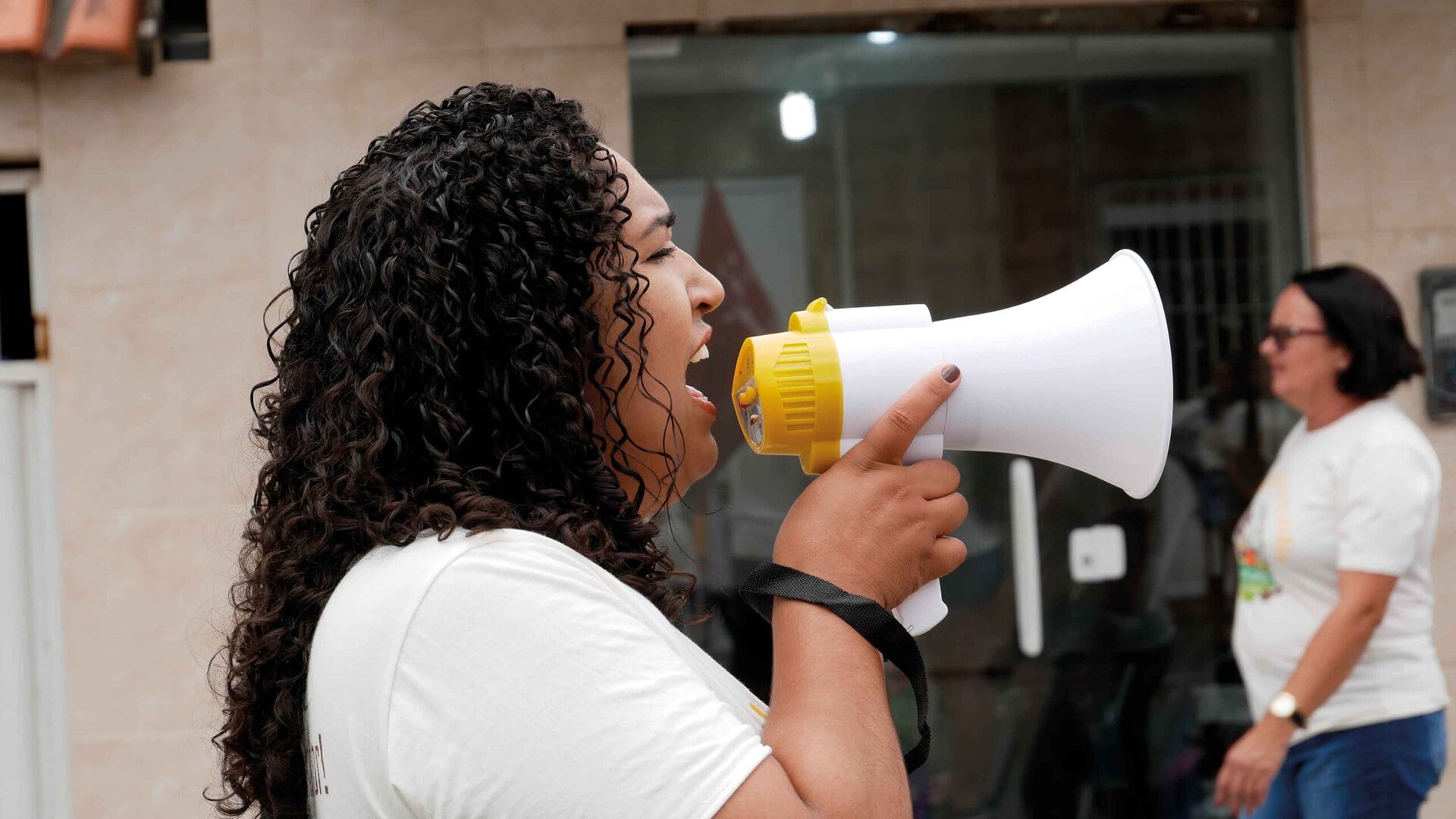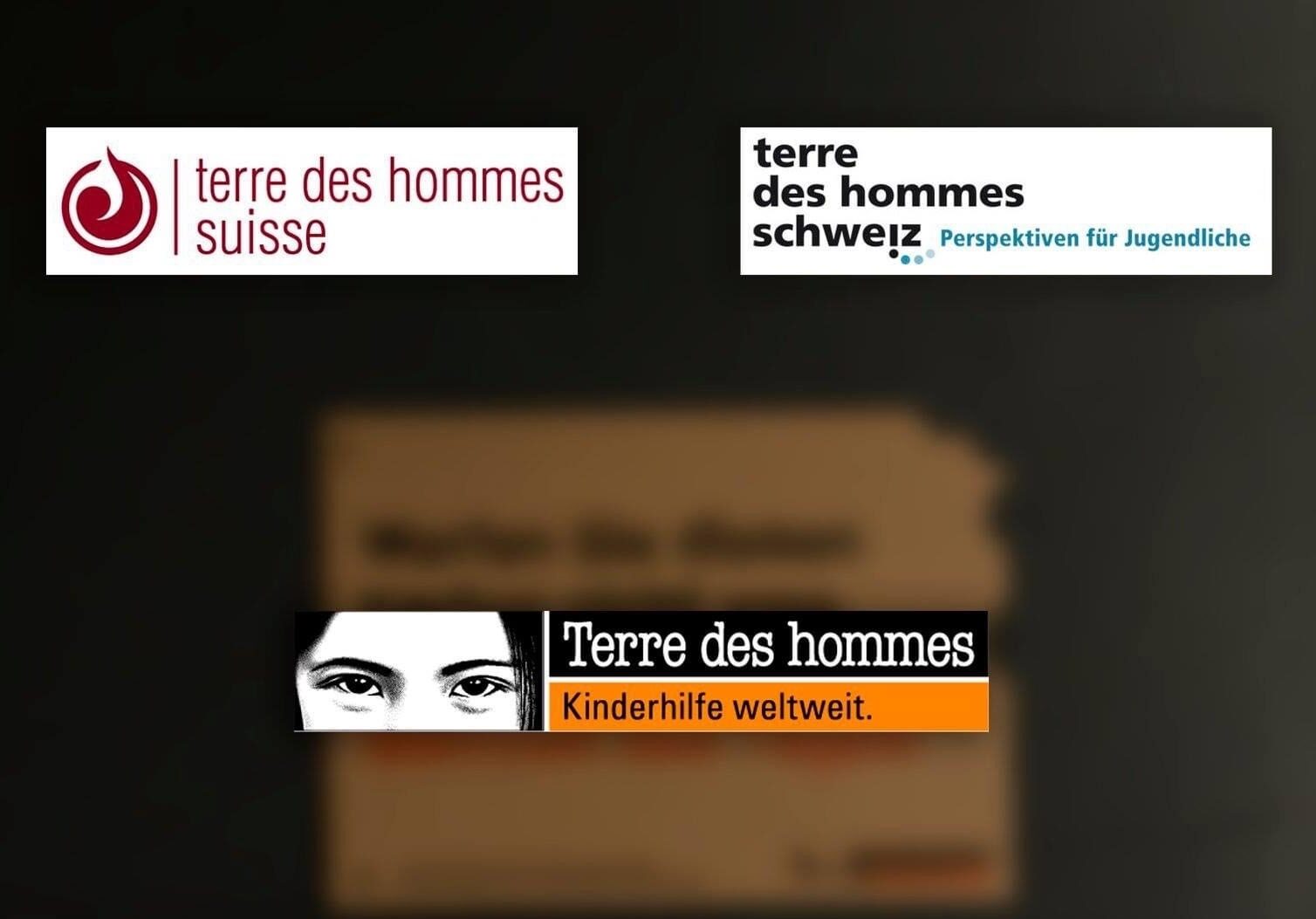The World Cup celebrations are over, the spotlights have been switched off and the country is once again facing the same problems as before the World Cup. Now, during the Brazilian election campaign, the population is back with a huge vote. In a broad-based referendum, almost 7.5 million people spoke out in favor of fundamental political reforms. Our partner organization Sabia was among them.
The large demonstrations throughout Brazil in June 2013 also made the population’s disenchantment with politics visible internationally. The reason for the dissatisfaction lies in the unequal distribution of Brazil’s great wealth and the lack of representative political representation of the population. The demand for political reforms was clearly emphasized in September of this year: According to the initiators of the non-binding referendum (“plebiscito constituinte”), 7.7 million people cast their vote. Of these, 97 percent were in favor of fundamental political reforms. The petition is to be presented to the National Assembly in Brasilia in mid-October 2014.
Almost 500 Brazilian organizations involved
The broad alliance of around 500 civil society organizations (a total of 2,000 committees) was able to mobilize thousands of activists for the consultation, who set up 40,000 ballot boxes across the country. Our partner organizations (e.g. Sabia) also took part in the organization of this referendum: they informed and sensitized the population and collected votes in specially set up ballot boxes. In the survey, the alliance called for a reform of the political system in order to improve the representation of the Brazilian population. The specific demand is that an independent group elected solely for this purpose should draw up constitutional reforms on this topic.
Timing not coincidental
Although the massive demonstrations took place over a year ago, the timing of this referendum was deliberate. The election campaign is underway. At 24 billion euros, this election campaign is expected to be the most expensive in Brazilian history. By way of comparison, the “bolsa familia” social program could be paid out to its current 50 million recipients for six years with 24 billion euros.
Land of inequality
Brazil is one of the countries with the greatest disparities in the distribution of wealth in the world. The composition of the National Congress also reflects this exclusion of the vast majority of the Brazilian population: over 70 percent of the seats are occupied by large landowners, large farmers and entrepreneurs. Nine percent are women and 8.5 percent are black representatives, although 51 percent of the population identify themselves as black. Last but not least, young people between the ages of 18 and 35 are inadequately represented: Although they make up 40 percent of the electorate, only three percent of seats in Congress are held by this age group. (Source: Website of the committee)



